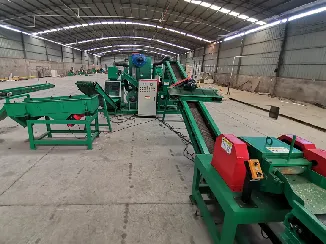In today's fast-paced technological landscape, upgrading to the latest television model is almost a given. However, the question remains how do you responsibly dispose of your old TV? Disposing of a television set is not as straightforward as leaving it by the curb for your regular garbage collection. It's a process that requires careful consideration due to the potential environmental hazards associated with improper disposal. Here's a comprehensive guide to ensure you're disposing of your TV responsibly, drawing from both personal experience and industry expertise.

Firstly, understanding the hazards of improper disposal is crucial. Televisions contain various toxic materials, such as lead, mercury, and cadmium. When improperly disposed of, these materials can leach into the ground, contaminating soil and water supplies. Therefore, it's not just a matter of inconvenience but a significant environmental concern. Many local administrations have strict policies against disposing of electronics in regular trash to prevent such hazards.
Begin by checking if your TV is still in working condition. If it is, consider donating it. Organizations such as Goodwill or Salvation Army often accept functioning electronics. Some local schools or community centers might also welcome such donations for educational purposes. This not only extends the lifespan of the TV but also supports communities and reduces environmental waste.

If the TV is beyond repair, recycling is a practical option. Electronics recycling has become increasingly accessible, with numerous programs specifically targeting e-waste. These programs ensure that TVs are dismantled appropriately, and their components are either reused or safely disposed of. Look for certified e-waste recycling centers in your area. The Environmental Protection Agency (EPA) provides a useful resource for locating certified e-waste recycling facilities.
Another avenue is returning the TV to the manufacturer. Many electronics companies have take-back programs where they accept old televisions for recycling. Companies like LG, Samsung, and Sony offer such programs, often free of charge. This approach guarantees that your TV is handled by professionals familiar with its components and environmental impact.
Some retail stores that sell new televisions also offer trade-in or buy-back programs. Retailers like Best Buy have specific programs where you can bring your old model, sometimes receiving store credit in exchange. It's advisable to check with local stores about their policies regarding electronic returns and recycling initiatives.
how do you dispose of a tv
For those looking for a bit of financial return, selling parts may be an option. Many electronics enthusiasts or repair shops are interested in purchasing parts from older models. Platforms like eBay or Craigslist serve as good starting points for selling usable parts. However, ensure you accurately describe the condition of the parts and the model specifications to maintain transparency.
Local government and community initiatives often provide special disposal days for electronic waste. These events are organized to collect e-waste,
ensuring that such items are disposed of properly. Participating in these events is an excellent way to support local environmental efforts while solving your disposal problem.
A critical factor to remember is data security, especially for smart TVs. Before disposing of your set, reset it to factory settings to remove personal information. Disconnect any accounts linked to the device to prevent unauthorized data access.
Lastly, keep abreast of the latest legislation on e-waste disposal. Some regions have stringent laws about electronic waste, influenced by growing environmental concerns. Understanding these laws can prevent legal complications and ensure you are adopting environmentally responsible habits.
In conclusion, the disposal of a TV requires careful consideration, not only for convenience but for environmental responsibility. By exploring options such as donation, recycling, manufacturer take-back programs, and participating in local e-waste initiatives, you can ensure that your old TV is disposed of safely and sustainably. Embracing these strategies contributes to a healthier planet and supports sustainability efforts on a global scale.



